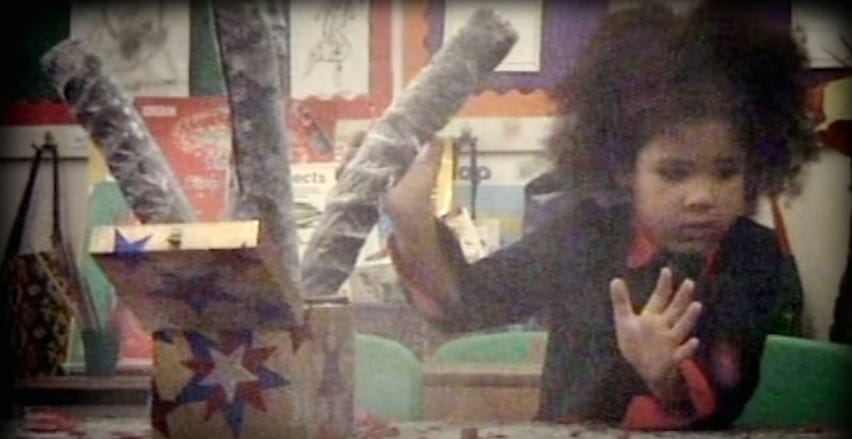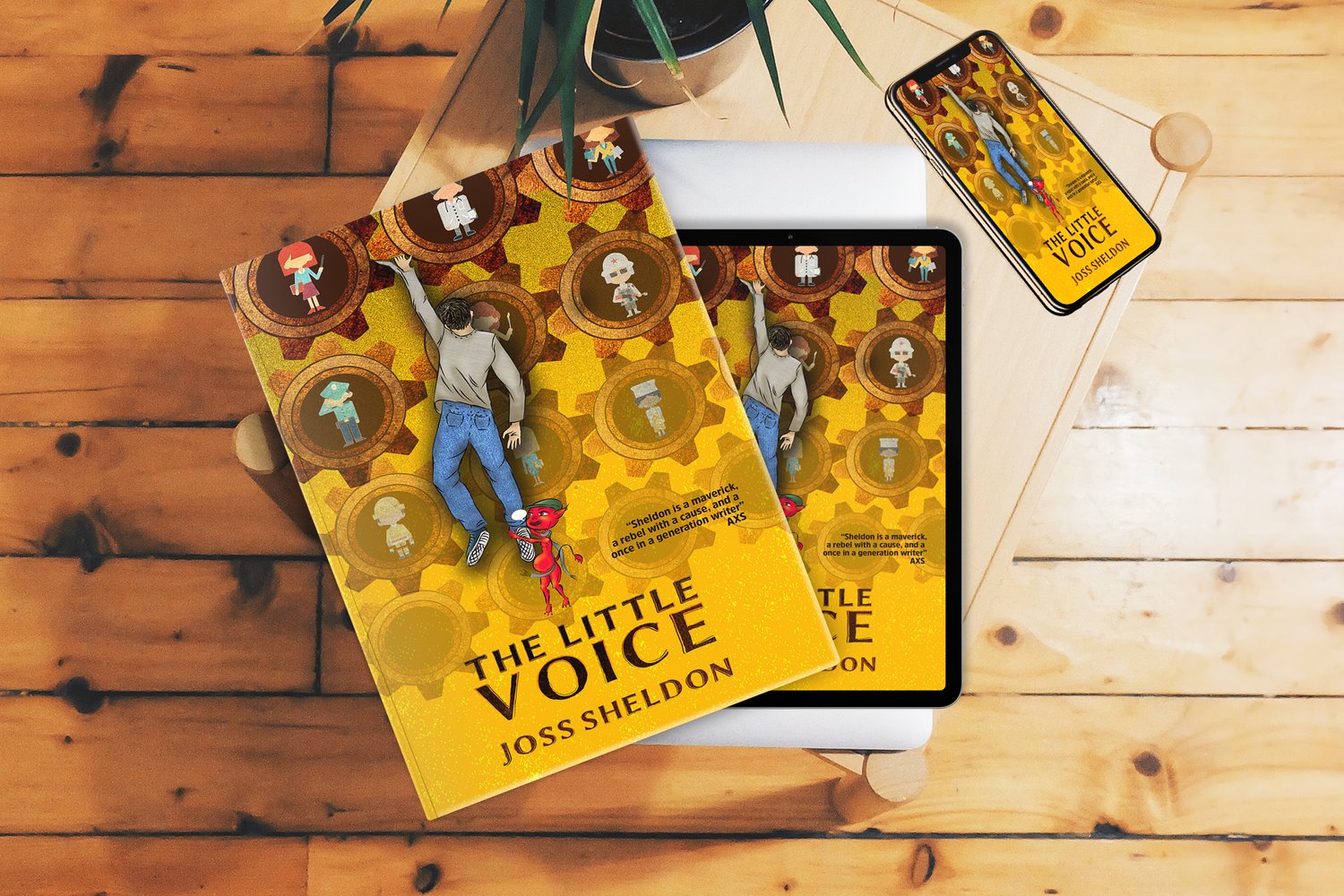My latest book, ‘The Little Voice’, is inspired by the classic Russian novel, “Crime & Punishment”.
I hope this doesn’t put you off! Classic Russian literature has a reputation for being long and difficult to read. But The Little Voice is a short, easy read. And it still embodies the spirit of Dostoevsky’s classic novel…
Crime & Punishment follows the travails of its protagonist, Raskolnikov. Yes, I know; even the names are complicated!
Well, Raskolnikov commits a double axe-murder in the opening chapters of the book. It’s pretty gruesome. But the real point is not what he does, but why he does it.
He kills a pawnbroker, and her half-sister, because it was something he wasn’t supposed to do. It was a guilty thrill. An act of personal liberation. Rebellious. Omnipotent.
Of course, it helped that Raskolnikov overheard a conversation in a tavern, just before he committed his crime. In it, another character said, “Kill her, take her money, and with the help of it devote yourself service of humanity and the common good”.
This sort of logic enabled Raskolnikov to clarify his thoughts and justify his actions. The murders, he reasoned, could be executed for the greater good; to help humanity. It would be a moral act, which would mark him out from the “Ordinary” people, who merely abided by the law, and help him to become an “Extraordinary” person, who transcended the law.
Raskolnikov, therefore, came to feel a duty to rise above society’s rules, break the law and commit murder. He was overcome by a rebellious urge.
Psychologists call this urge “Reactance”. It’s an urge which also effects the main protagonist in The Little Voice, Yew Shodkin. He’s also a bit of a rebel.

So what, exactly, is “Reactance”?
Reactance occurs when a person becomes fed up of being told what to do all the time. In the end, they “React”. They rebel.
This is how I explain it in The Little Voice:
“When a person’s freedom is threatened, they will take steps to restore those freedoms which are under threat. They will move their own opinions on an issue away from the opinions which are being forced upon them, even if they originally supported those opinions.”
This, it seems to me, is what happened to Raskolnikov. He started off believing that murder was morally wrong. But, he got fed up of a society which constantly reminded him, “Good people don’t murder”, “We’ll punish you if you commit murder”, “Our power to stop you murdering is greater than your power to act”.
Raskolnikov “reacted”. He snapped. He shifted his view away from the view which was being imposed on him, that murder was wrong. Then he committed his gruesome crime.
This is a pretty extreme example.
Yew Shodkin, in The Little Voice, doesn’t do anything nearly as heinous as Raskolnikov. I’ve tried to make Yew normal; recognizable; someone who readers can associate with.
And so, with this in mind, it’s perhaps a good idea to turn to Derren Brown, for his more light-hearted take on reactance.
“Don’t watch this video” — Derren Brown
In this video, Brown says that we are pressured to act in certain ways. It “starts early in our childhood, when we are told ‘Don’t do this. Don’t do that’.”
Don’t run in the corridor! Don’t pull your sister’s hair! Don’t pick a bogie and then eat it!
Brown calls this “Negative Suggestion”. But, he argues, “The more we try not to do something, the more we are likely to give in and do it.”
That’s reactance! It’s what happened to Raskolnikov, in Crime & Punishment. And it’s what happens to Yew, in The Little Voice.
To demonstrate his point, Brown sets up an experiment, in which two young children are left alone with a box. As he leaves them, Brown tells the children, “Don’t look inside the box. Don’t open it”.
Brown then explains what he is doing:
“My negative suggestion there, ‘Don’t look inside the box’, is designed to sit heavily on their minds and stoke their curiosity… The idea goes round and around inside their heads, and the more they try not to open it, the more difficult it is to resist.”
Eventually, the children can’t “resist” the urge to rebel. Reactance takes over. They press the button which opens the box.
Tubes instantly spring out of the box.
Confetti and dust spray all across the room.

“Don’t watch this video” — Derren Brown
Brown goes on to give another example. He sets up a temporary, wooden wall, which runs alongside a public path. A peephole has been placed in the centre of that wall. A sign, above that peephole, says ‘Do not look through this hole’.
What happened? People stopped and looked through the hole, of course! They did the very thing they were being told not to do. Reactance, that rebel urge, took control of them.
Brown explains:
“This rebellious urge, to fight commands telling us not to do something, is founded early in life and carried on into adulthood. Curiosity plays a role too; we wonder what will happen if we do the thing we’re trying not to do, and tend to give in because that child-like naughty urge won’t go away.”
At this level, reactance is a force that affects us all. I mean, we all know that we shouldn’t eat that slice of chocolate cake, right? But we often eat it nonetheless. We call it a “Guilty pleasure” and laugh it off.
We hit the snooze button when we’re supposed to be getting out of bed, and tell ourselves, “Five more minutes won’t hurt”. We break the speed-limit when we drive, and tell ourselves, “It’s only by a few miles per hour, it won’t make a difference”. We watch videos on YouTube which have been uploaded without the permission of the owner. We know it’s wrong, but we do it anyway. We rebel.
Like in The Little Voice, these minor misdemeanours take place at the personal level. They’re personal decisions, over personal actions, which only really affect us and maybe a few people around us.
But there are wider, societal, implications too. Political implications.
When I first read about reactance, I couldn’t help but think of Portugal.
In Portugal, back in 1999, almost one percent of the population was addicted to heroin. Drug-related AIDS deaths in the country were the highest in the EU.
Then, in 2001, the government decriminalized the possession and use of drugs.
So, what happened?

Drug use in Portugal, 2001–2012
As this chart shows, drug use increased slightly at first. But it fell dramatically over the course of a fourteen year period. The number of drug-induced deaths also declined, as did the rate of HIV infections.
So it turns out that back when the law told people not to take drugs, people had actually taken more drugs! It was a rebellious act. An act of reactance. People had shifted their behaviour to restore their threatened freedom — the freedom to take drugs.
But, when those drugs were decriminalized, that threat disappeared. People didn’t need to stand up for their freedom, and so they took less drugs.
This poses an interesting question:
If legalising drugs can reduce the amount of drug-taking, can legalising murder reduce the murder-rates?
Perhaps not.
Would Raskolnikov have still killed the pawnbroker if murder had been legal in 19th century Russia?
Perhaps.
These are hypothetical questions. It’s hard to give a firm and definitive answer. But it is an interesting concept to consider nonetheless.
Well, The Little Voice encourages the reader to ask themselves questions just like these. Questions which can’t really be answered. But questions which are still intriguing.
It’s not nearly as political as my previous two novels, “Occupied” and “Involution & Evolution”. It’s personal and psychological. But it is still political, implicitly, deep-down.
Crime & Punishment was the same. It focused on its protagonist, Raskolnikov. But, in doing so, it questioned the whole society in which Raskolnikov lived. The society which had shaped him. The society which had told him what he should do, and what he shouldn’t do.
Well, The Little Voice also focuses on its protagonist, Yew; a guy just like you or me. In doing so, it also makes us question the society in which we all live today. Yes, it’s psychological. But it’s also political. And the concept of “reactance”, that rebel urge, runs through the very heart of it…
The ebook version of The Little Voice is available from this website, here.
Physical copies are available from Amazon, Barnes & Noble, Watestones, and all good online retailers…
Also in this blog series...


Comments ()